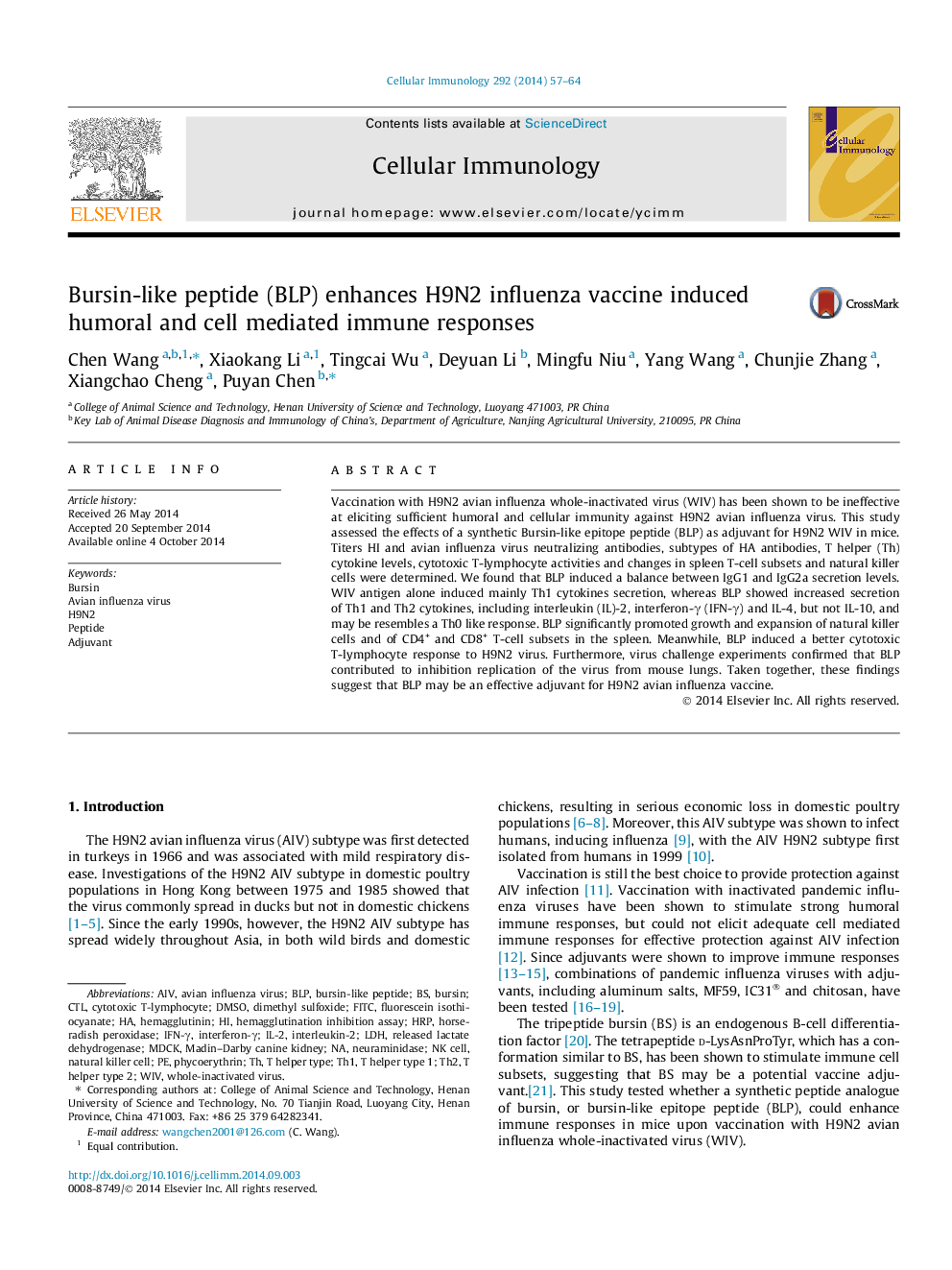| Article ID | Journal | Published Year | Pages | File Type |
|---|---|---|---|---|
| 2166982 | Cellular Immunology | 2014 | 8 Pages |
•BLP promotes a mixed Th1/Th2 type immune response.•BLP promotes growth and expansion of spleen NK cell and T-cell subsets.•BLP induces a strong production of IL-4, IL-2 and IFN-γ and resembles a Th0 response.•BLP contributes to inhibition of viral replication upon challenge of the vaccinated mice.•We uncover that BLP can be an effective adjuvant for H9N2 avian influenza vaccine.
Vaccination with H9N2 avian influenza whole-inactivated virus (WIV) has been shown to be ineffective at eliciting sufficient humoral and cellular immunity against H9N2 avian influenza virus. This study assessed the effects of a synthetic Bursin-like epitope peptide (BLP) as adjuvant for H9N2 WIV in mice. Titers HI and avian influenza virus neutralizing antibodies, subtypes of HA antibodies, T helper (Th) cytokine levels, cytotoxic T-lymphocyte activities and changes in spleen T-cell subsets and natural killer cells were determined. We found that BLP induced a balance between IgG1 and IgG2a secretion levels. WIV antigen alone induced mainly Th1 cytokines secretion, whereas BLP showed increased secretion of Th1 and Th2 cytokines, including interleukin (IL)-2, interferon-γ (IFN-γ) and IL-4, but not IL-10, and may be resembles a Th0 like response. BLP significantly promoted growth and expansion of natural killer cells and of CD4+ and CD8+ T-cell subsets in the spleen. Meanwhile, BLP induced a better cytotoxic T-lymphocyte response to H9N2 virus. Furthermore, virus challenge experiments confirmed that BLP contributed to inhibition replication of the virus from mouse lungs. Taken together, these findings suggest that BLP may be an effective adjuvant for H9N2 avian influenza vaccine.
